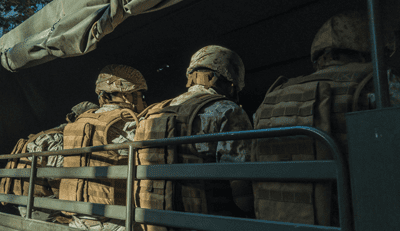The Defense Department dumped an officer’s body. Now it must give his wife a job!
On Wednesday, an appeals tribunal concluded that the Defense Department unjustly retaliated against a whistleblower who filed for a civil service job after her husband was killed in combat in Iraq and the Air Force dumped his cremated ashes at a Virginia landfill.
Garilynn Smith alerted the media and a congressman after learning of her husband’s mistreatment five years after his death as a U.S. Army sergeant and bomb disposal technician. Smith was a civilian Army employee in New Jersey at the moment. She started a new career in the Navy, but she quickly changed her mind and applied for an executive assistant role at her former office. Smith lodged a formal complaint with the Office of Special Counsel after the Army had chosen someone else for the position.
The matter went to the Merit Systems Protection Board. An official judge concluded in 2017 that the Army had retaliated against Smith and requested that she be offered the job and back pay. Due to a lack of quorum, the Army filed an appeal to the MSPB’s central board, where it sat for five years.
The newly established board’s independent, quasi-judicial agency concurred that the Army had participated in unlawful retaliation in one of its earliest precedential findings. In its ruling, the board indicated that it would follow recent precedent in adopting a “wider perspective of retaliatory motive” in whistleblower cases, which advocates and observers welcomed.
The board stated that Smith successfully demonstrated that the hiring officers involved in her application were aware of her filings before choosing another candidate. It shifted the burden of proof to the agency that whistleblowing did not play some role in its selection. While the Army claimed Smith was a poor performer who could not work effectively with others, the board found she had only gotten positive feedback and flawless marks on “working relationships and communications.” Smith had submitted too many telework requests, according to the agency. Still, the board contended that she only did so because she was sick with a maternity-related disease and needed to keep working.
According to the board, Smith’s lawyers showed that the significant media attention her tale received had become a “source of fear” for Defense Department officials, which noted that it was using a broad definition of what constitutes retribution. Although the hiring authorities were not directly involved in Smith’s revelations, they may have responded out of concerns for their agency’s well-being.
While none of the agency officials responsible for the decision not to select the appellant was directly implicated in the improper handling of service members’ remains, the board claimed that the misconduct the complainant disclosed was egregious. Her filings generated a substantial amount of negative publicity for the DOD.
“In light of these conditions, the appellant’s disclosures reflected badly on DOD officers as representatives of the DOD’s general institutional interests, which is sufficient to prove retaliation.”
The board ruled in Smith’s favor, ordering the Army to appoint her to the position she applied for in 2012 and pay her back pay for the time she was absent. Smith’s lawyer, Graig Corveleyn, told Government Executive that he wasn’t sure if his client would return to the office where she applied nearly a decade ago. After the administrative judge’s initial decision in 2017, she briefly accepted the position and got a few months’ back pay. However, Corveleyn claims she is entitled to nearly five years’ unpaid wages.




